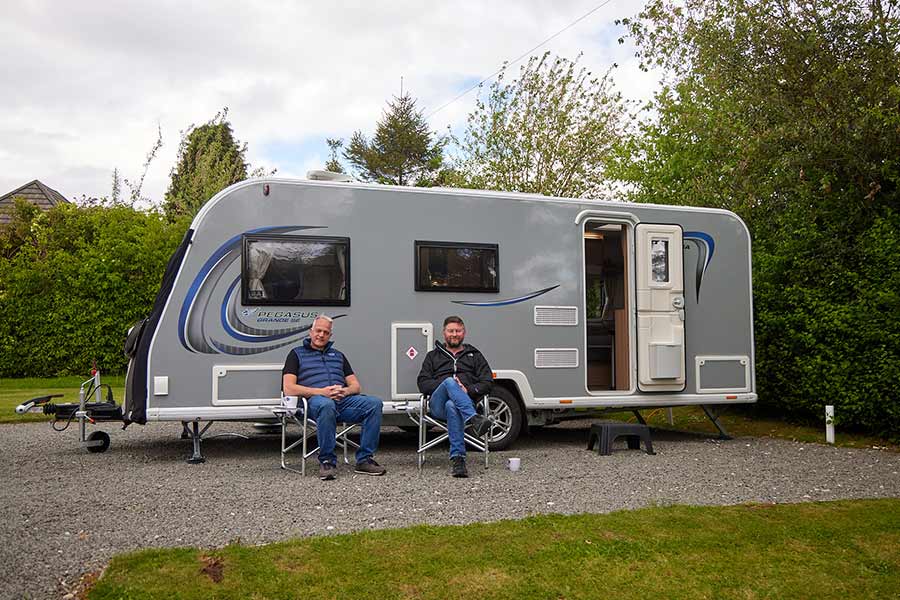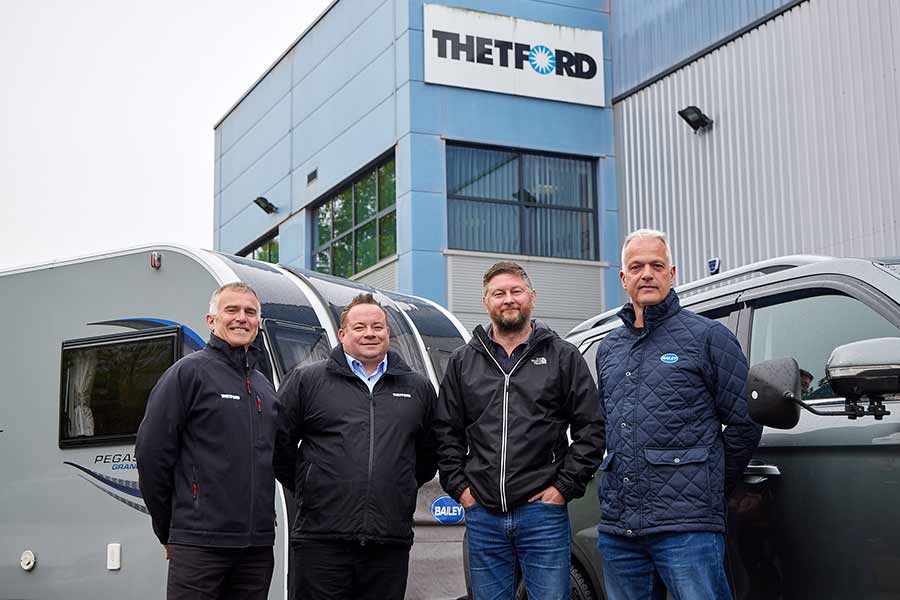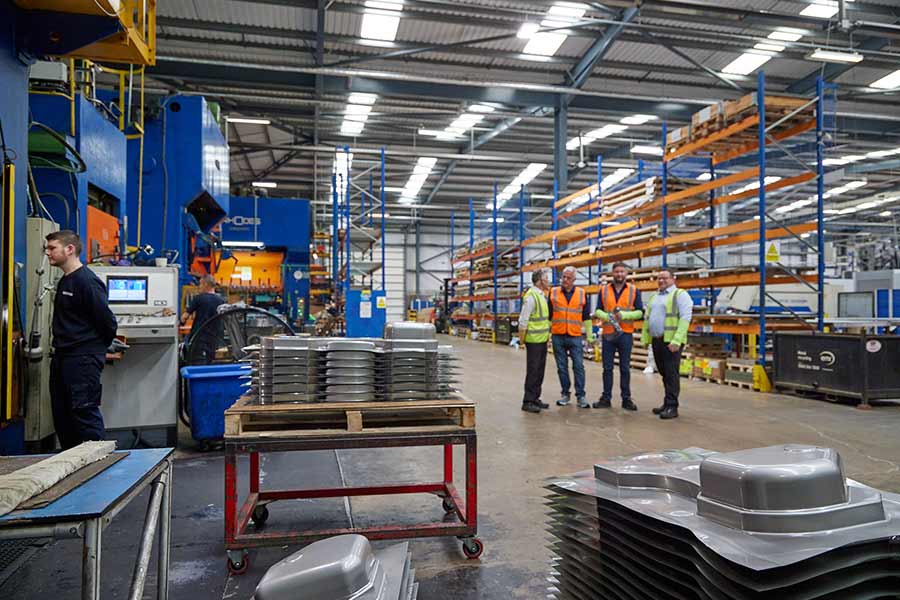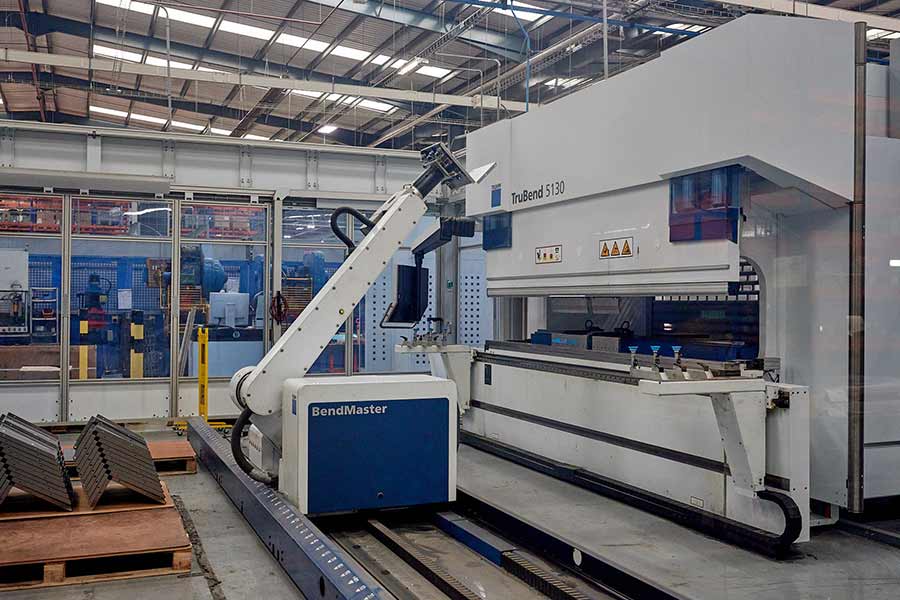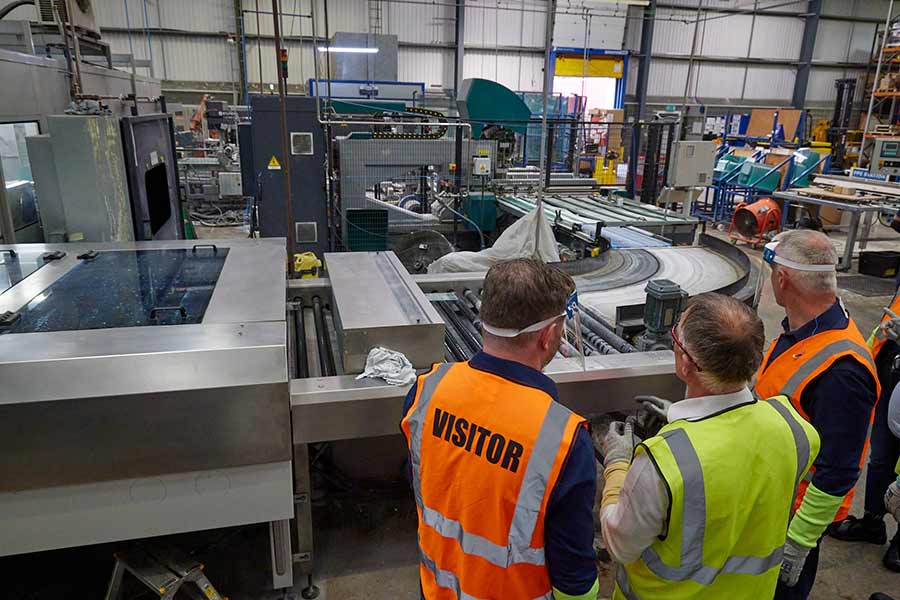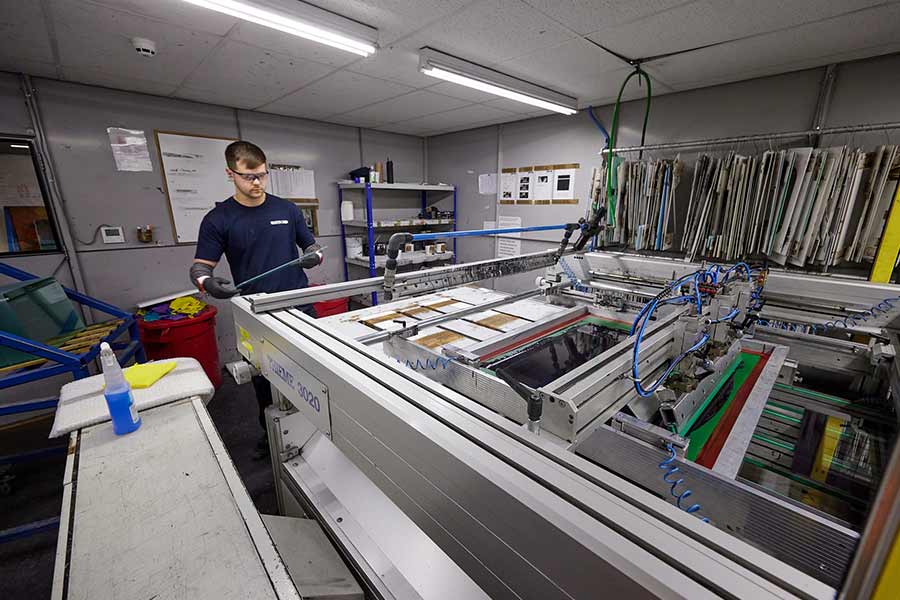Thetford UK - South Yorkshire
Having your own cooking facilities on the road has to be one of the greatest advantages of caravanning. From the complexity of a Sunday roast to the simplicity of grilled cheese on toast. All comes courtesy of Thetford, who have supplied Bailey caravans and motorhomes ovens and cookers for as long as we can remember.
In this visit, Simon and Lee talk to Paul Martin, Account Manager for Thetford UK, and get to know Thetford’s huge site in Rotherham, where they make up to 2,000 ovens a week, plus most of their components from scratch at their factory.
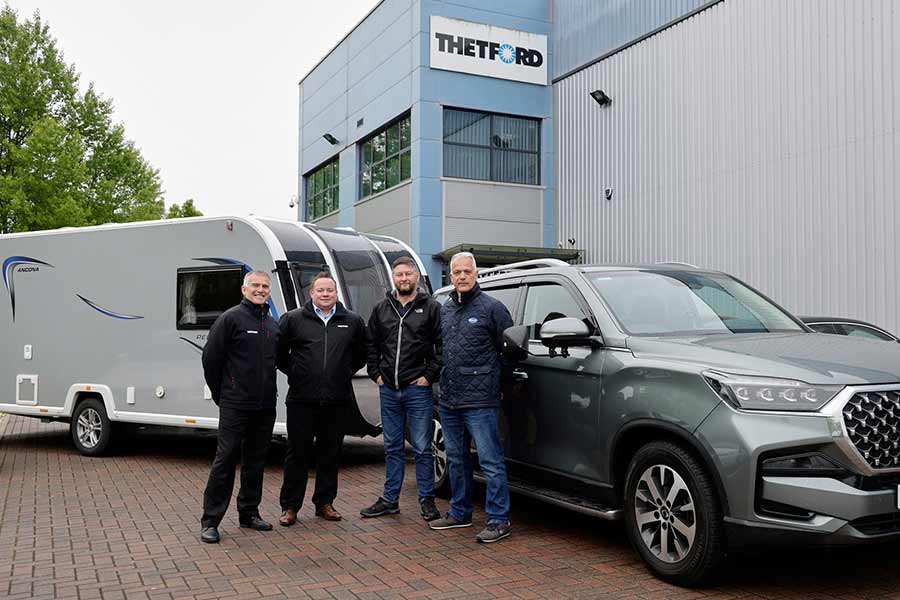
LEE: We did our homework last night in the caravan and we cooked a lovely salmon and asparagus tray bake courtesy or your oven. So we get to know you product pretty well… With that in mind, can I ask you a few questions about Thetford UK?
PAUL: Fire away
LEE: I have used Thetford ovens in a variety of power sources such us 230v, 12v supply which ignites the gas, and obviously gas itself. What are the challenges that you, as a company, may face trying to combine all three aspects of powering a cooker into a leisure vehicle unit?
PAUL: Different environment temperatures, different amounts of vibrations when it’s travelling in between locations, … All that adds quite a lot of complexity. You have to use lightweight but strong materials, in a small space and still give the customer the performance of a home from home oven with three different power sources, two of which is what you really use for cooking. The 12volt is there for ignition purposes only.
SIMON: So it is really a sophisticated piece of kit and not something you can get from the high street…
PAUL: No. They are much lighter, to keep the weight of the vehicle low. They are also designed to be able to handle vibrations travelling down the road and handle extreme temperatures. Our products go to into Sweden, Australia and the UK. The temperature variances of those regions is huge, so they have to be able to perform well from the second you pull up at a site, even from before the caravan gets warmed.
We also work with LPG (liquefied petroleum gas), not mains gas, which is what you would normally find with ovens from the high street. So there are a lot of differences, and that presents a lot of challenges when designing new products.
"Our ovens and cookers are designed to handle different environment temperatures and vibrations when travelling"
SIMON: And weight must be a key consideration because the cooker is one of the heaviest appliances that we fit. This is why typically in every caravan the kitchen is over the axle.
PAUL: Yes, absolutely. One of the challenges is trying to find the balance between reducing the weight and improving performance. And that comes back to material selection, and the components that go into the cooker are designed. We always try to save a few kilos, which doesn’t sound like a lot, but in the overall weight of the caravan can make a big difference.
LEE: Bailey is a UK caravan manufacturer, but how would your ovens and cookers differ in the European or further afield market?
PAUL: Cosmetically, there is not a great deal of difference. We share quite a lot of cosmetic similarities. But, for example, the Australian market very much like the UK market prefers the traditional full stack oven so you have a separate grill and separate oven cavity and then the hob on top. And that can be gas or dual fuel. In the continent they tend to prefer single cavity oven and grill.
SIMON: And that would be similar for other appliances like water heaters, etc.
PAUL: Yes, all gas appliances would fall under that.
Going deeper into that, you also have different types of plugs, different legislations with the warning labels depending on the territory the unit is manufacture for… And finally, different certifications, which is starting to change in the UK due to Brexit.
SIMON: I understand that you not only manufacture ovens and cookers for caravans and motorhomes. You work for other markets as well.
PAUL: Yes, that’s right. Our appliances are sold into the marine market, both coastal and in land marine.
SIMON: Similar challenges there…
PAUL: Yes. Coastal not as much but certainly in land marine. Narrow boats, dutch barges… they have very similar requirements.
"We supply our products to other markets like in land and coastal marine"
LEE: I spent a day in the production line at Bailey. I was manning 12 stations out of 25 and it was good to have an insight on how these components come together. One of the stations I wasn’t allowed in for good reason (although I’m not sure how I was allowed on the other 12!) was the installation of your oven and the “gas stuff” that surrounds this.
What processes do you have between you and Bailey for installing your appliances?
We have a process that we call vendor vetting. This comes at multiple stages.
We have an initial one where either ourselves or Bailey come up with a new product, we would deliver a sample, do an installation, make sure both parties understand the requirements to ensure it’s safely installed, and then we would approve that installation.
Following on from that we have regular installation audits approximately every six months (as not a lot changes in that time).
We also support Bailey on their own production line with continued support on site with one of our engineers at least once a week, making sure everything is how it should be and answering questions. And that support both parties as it helps us understand what changes you are considering, and what things can be improved.
On the line you have two stages. You have the installation phase, which is the cooker being installed (where you weren’t allowed, Lee). We requite the person completing this job to be gas competent.
And then at the end of the line you have a gas check of the whole vehicle. And this would be with a gas qualified engineer that put their signature of approval against the gas installation.
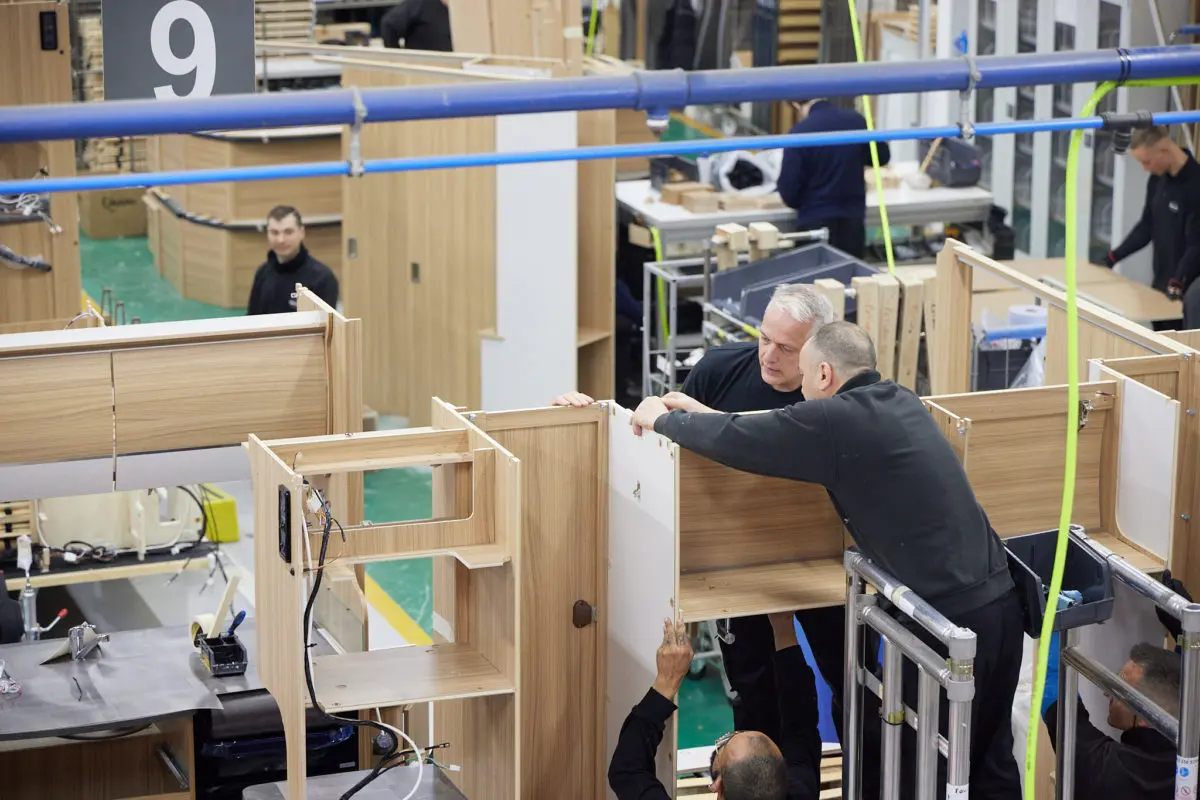
SIMON: How long have Thetford being here making ovens?
We have been at this side for 12 years making ovens.
SIMON: Prior to that it was a company called Spinflo, which some of our older Bailey owners may remember…
And you supply a 100% Bailey leisure vehicle ovens for as long as I can remember.
PAUL: Yes, for many many years.
SIMON: How many people do you employ here?
PAUL: Around 290 now.
SIMON: So it’s a sizable operations, plus you have a sister operation on mainland Europe which we will be visiting soon.
SIMON: As any business you have faced a couple of major challenges recently, the first one being Brexit. I’m guessing that, as a European owned business that might have thrown some more challenges than to a UK owned business…
PAUL: Yes. This has affected all parts of our business. It becomes a little bit more challenging to get things coming in from Europe. We also export products so paperwork going out is more complicated… We are all still learning what that meant for us as businesses as we went through the Brexit transition period. There is a lot more paperwork, and costs that go into that now.
And then there is impact on labour… So yes, it’s presented a few challenges.
SIMON: Sounds like a lot to take on. And if that wasn’t enough, suddenly COVID turns up and turns most people’s worlds upside down. How did you respond to COVID as a business?
PAUL: It presented several issues. First was the immediate shut down and how to reopen. We had to reopen fairly quickly because we supply other territories and regions that weren’t necessarily in shutdown. And that was a very slow process because we had to find the right balance of work force to meet demand while a lot of other businesses were on furlough.
We handled it very well. We have a very spacious factory. Our workstations are very well spaced out so we were able to produce good numbers.
SIMON: Final question. With an eye to the future, is there any top-secret information you could give us? What can we expect from you guys in the future?
PAUL: We are certainly seeing a trend towards electrification and that naturally encompass habitation areas. It also has an impact on tow vehicles… So how things are powered is likely to change, so we must be creative with how we can support that moving forward…
END
Images from our day at Thetford UK
Take a look at the gallery below to see images from our day at Thetford UK. Hover over the information icon on each photo to read the caption.






